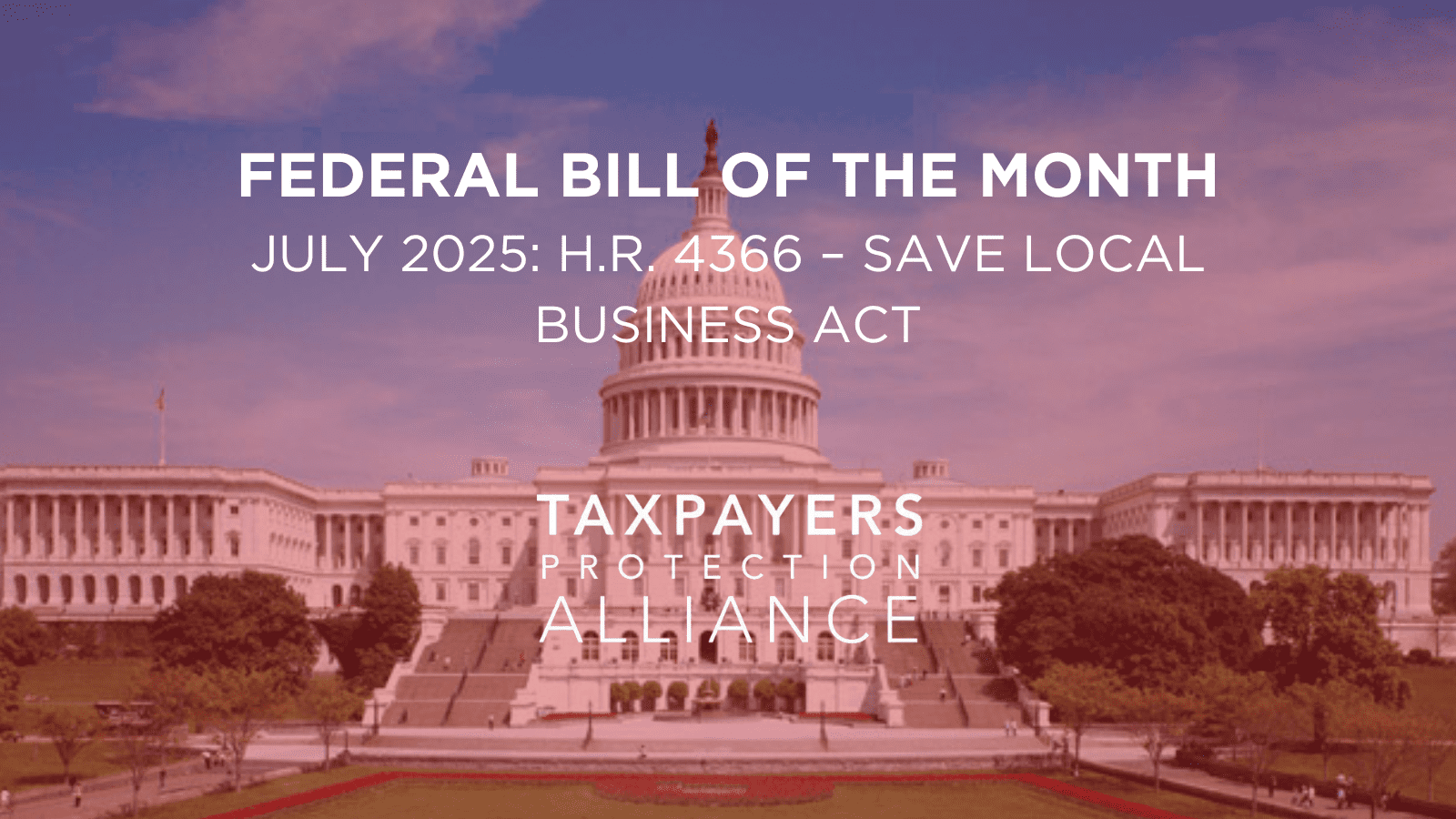
Federal Bill of the Month – July 2025: H.R. 4366 – Save Local Business Act
Taxpayers Protection Alliance
July 29, 2025
Small businesses are the engine of economic growth in America, driving job creation, innovation, and community investment. Franchises, contractors, and local employers that rely on staffing agencies all play a vital role in supporting Main Street. Yet these businesses thrive only when the rules are clear and predictable. That is why Rep. James Comer (R‑Ky.) reintroduced H.R. 4366, the Save Local Business Act in the 119th Congress, a common‑sense reform designed to restore clarity to labor law and give small businesses the certainty they need to expand and hire. Introduced on July 14, 2025, the bill addresses years of regulatory confusion surrounding the “joint employer” standard under the National Labor Relations Act (NLRA) and the Fair Labor Standards Act (FLSA).
The Save Local Business Act codifies a straightforward test for determining joint‑employer status: two or more entities would be considered joint employers only if each directly, actually, and immediately exercises significant control over essential employment terms such as hiring, firing, pay, benefits, scheduling, daily supervision, and discipline. This clear rule replaces the shifting, ambiguous standard that treats businesses as joint employers based on indirect or even potential influence. That previous approach—pushed by the National Labor Relations Board and currently subject to legal challenges—is saddling small businesses with uncertainty, discouraged investment, and leaves franchise owners vulnerable to costly litigation.
Restoring a clear and predictable definition of joint employment is critical for protecting America’s franchise model. According to the International Franchise Association, more than 831,000 franchise small businesses operate in the United States, generating millions of jobs and billions in economic output. Under the expanded joint‑employer rules, these businesses faced estimated costs of $33 billion per year, 376,000 lost jobs, and a 93 percent increase in lawsuits. Franchisees—many of whom own and operate just a single location—are being treated as if they were subsidiaries of their brand partners, undermining the independence and entrepreneurial spirit that make franchising such a powerful job creator. By returning to a standard based on actual, direct control, the Save Local Business Act ensures that small operators can grow without fear of regulatory overreach.
The benefits of the bill extends beyond franchises, benefitting contractors, subcontractors, and local companies that rely on staffing agencies or third‑party vendors. A clear joint‑employer test will reduce legal uncertainty, lower compliance costs, and protect the flexibility that small businesses need to adapt and compete. It will also help preserve taxpayer resources by reducing frivolous litigation and removing barriers that stifle job creation.
Rep. Comer’s Save Local Business Act is a practical solution that aligns with the broader goal of empowering entrepreneurs and fostering economic growth. By removing confusion and reinforcing a standard grounded in direct control, it supports sustainable job creation and strengthens the small business ecosystem. As the legislation advances in the 119th Congress, passing the Save Local Business Act would send a clear message: America is committed to protecting the businesses that form the backbone of our communities and to ensuring that government policy fuels, rather than frustrates, opportunity and prosperity.
It is for these reasons, among others, that TPA is proud to make the Save Local Business Act, as introduced by Rep. James Comer, its Bill of the Month for July 2025.
